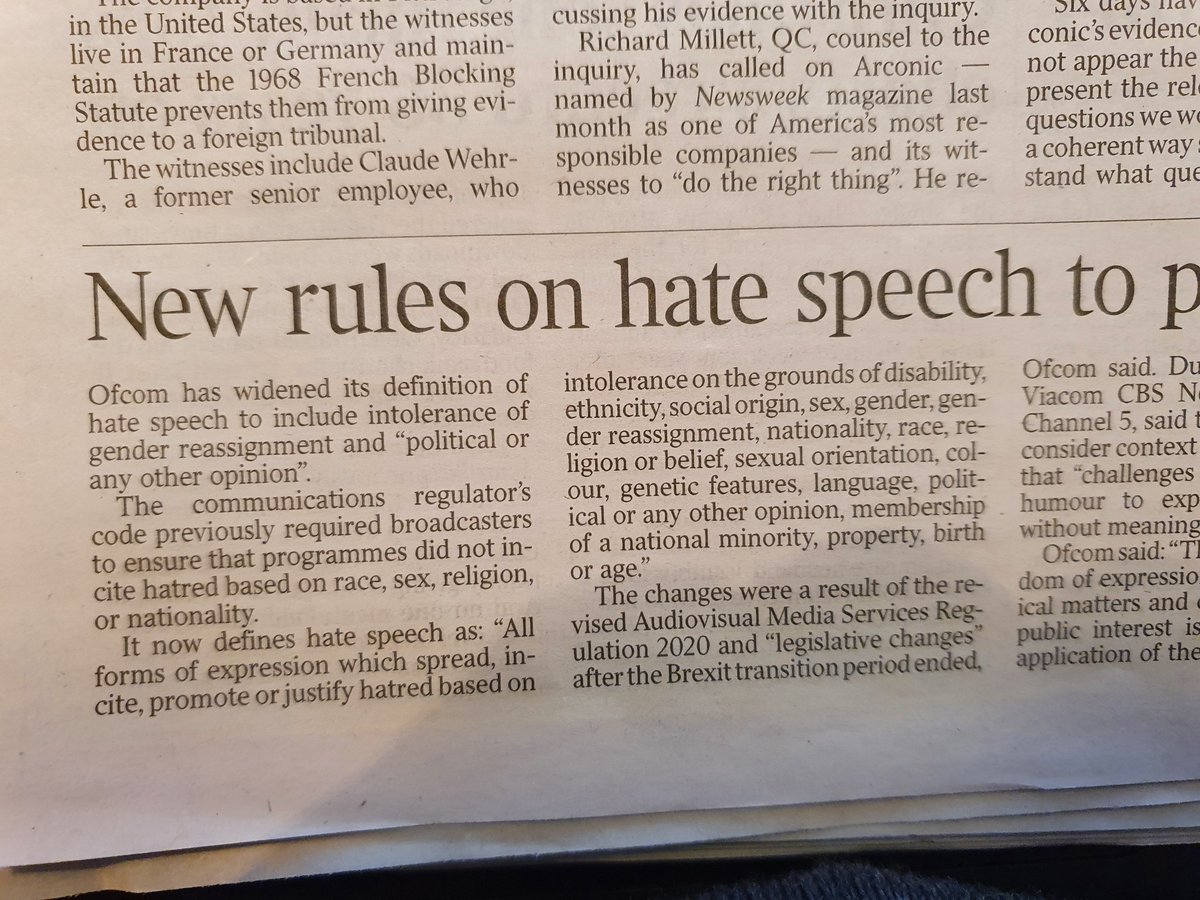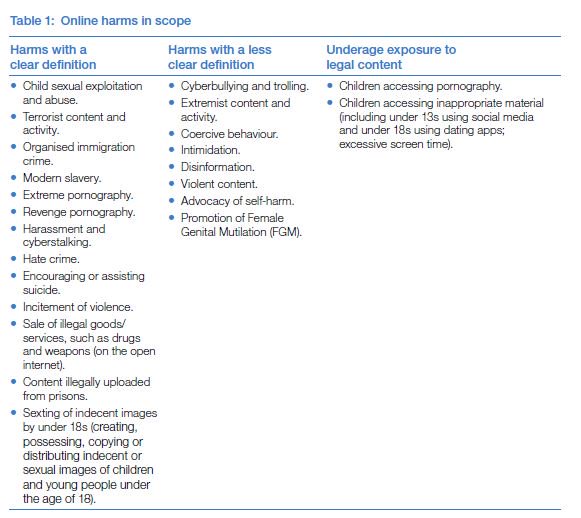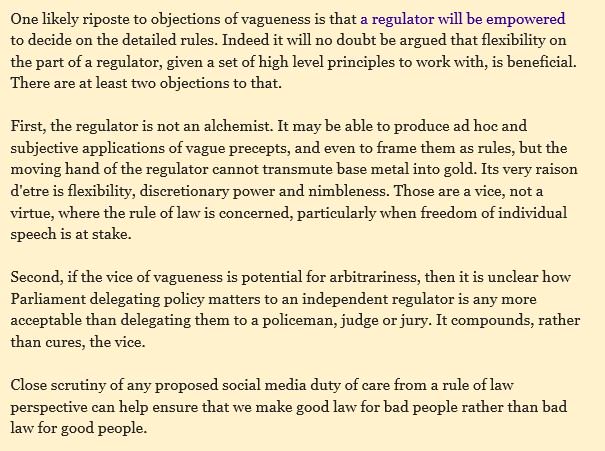
For whatever reason, this front page @thetimes story about @Ofcom's AVMS changes to the Broadcasting Code doesn't appear in the online version. 

Ofcom proposed amending the definition of hate speech to include the characteristics, as set out in Article 21 of the EU Charter, as follows: 

Ofcom noted that "the proposed amendments would not affect the weight we would place on the importance of freedom of expression in relation to political matters and content that is in the public interest."
So it seems that @ofcom will uphold political freedom of speech only if it can be demonstrated (to Ofcom's satisfaction, presumably) that it is in the public interest.
See @article19org's Law Commission submission (e.g. para 7) for a robust criticism of this overly narrow interpretation of freedom of speech. article19.org/wp-content/upl…
No. 10 in my list of things that the Universal Declaration of Human Rights does not say.
https://twitter.com/cyberleagle/status/1273368360974237696
So, if someone were to go on television and say 'I hate all communists and fascists, and so should all decent people', does that breach the Code? And, from a rule of law perspective, how could anyone know in advance what view Ofcom might take of it?
Let us not forget, Ofcom has said it is using AVMS implementation as a testbed for its future role in #OnlineHarms regulation.
Nor does Art 19 UDHR say 'Everyone has the right to freedom of such opinion and expression as Ofcom determines to be in the public interest'.
The peril of applying discretionary regulation to speech, made manifest.
As previously discussed. cyberleagle.com/2018/10/a-lord…
As discussed in my Ofcom submission. drive.google.com/file/d/1e4vSCl…
Correction: page 6, not front page.
• • •
Missing some Tweet in this thread? You can try to
force a refresh







